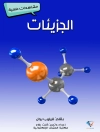The discovery and development of effective medicines for the treatment of psychiatric disorders such as schizophrenia and depression has been heralded as one of the great medical achievements of the past century. Indeed, the profound impact of these medicines on our understanding of the pathophysiology underlying these diseases, the treatment of psychiatric patients and even our social perception of mental illnesses cannot be underestimated. However, there is still an urgent medical need for even more effective, safe and well-tolerated treatments. For example, currently available treatments for schizophrenia address mainly the positive symptoms and largely neglect the negative symptoms and cognitive disfunction which greatly impact overall morbidity. Similarly, whilst the current first line antidepressants show significantly improved side effect profiles compared to the first generation therapies, there still up to 40% of patients who are treatment resistant, and even in the patient population which responds well, the onset of action is slow at typically 2-3 weeks. The aim of this book is to provide the first point of call for those involved or just interested in this rapidly expanding and increasingly fragmented field of research and drug discovery. The editors will combine their wide ranging experience and extensive network of contacts with leading scientists and opinion leaders in this field to provide an authoritative reference text covering the evolution, major advances, challenges and future directions in drug discovery and medicinal chemistry for major psychiatric disorders.
Table of Content
Preface;
Psychiatric disorders – an overview;
Section 1: Schizophrenia: The pathophysiology of schizophrenia;
Monoaminergic approaches for the treatment of schizophrenia;
Glutamatergic approaches for the treatment of schizophrenia;
Treating the cognitive deficits of schizophrenia;
Section 2: Depression, Anxiety and Sleep: The neurobiology of Depression and Anxiety;
Beyond SSRIs: second generation reuptake inhibitors for the treatment of depression;
Panic and Anxiety Disorders;
Glutamate approaches towards the treatment of mood disorders;
Modulation of HPA axis function as a treatment for mood disorders;
Neuropeptides receptors: novel therapeutic targets for depression and anxiety disorders;
Sleep Disorders;
Section 3: Other Psychiatric Disorders: Therapeutic approaches to bipolar disorder;
Pharmacotherapies for drug addiction;
Emerging research towards the understanding and treatment of Autism;
Section 4: The Challenges of CNS Drug Discovery: Crossing the blood-brain-barrier – methods for evaluating CNS exposure;
Medicinal Chemistry challenges in CNS drug discovery;
Animal models of psychiatric disorders;
Translational Imaging research in psychiatry;
Section 5: Case Studies: Discovery of a Novel Clinical AMPA Receptor Positive Modulator;
Orexin Antagonists for Insomnia – 14 years from genetics to patients;
Index.
About the author
Zoran Rankovic is a Senior Research Fellow and a Head of Medicinal Chemistry section at MSD, Merck Research Laboratories, U.K. 15 years experience in drug discovery with a track record of delivering compounds into the development for a number of therapeutic areas, including psychiatry. Over a decade of a direct involvement in shaping the early discovery portfolio for the neuroscience franchise. Zoran has a Ph D in organic chemistry from the University of Leeds, UK. Richard Hargreaves is Vice President and Worldwide Head of Neuroscience Discovery Research at Merck – completed his doctorate through the Physiology Department at King’s College London University UK. Joined Merck’s Neuroscience Research Center in Harlow UK in 1988. Leader of the discovery biology teams that contributed to the development of MAXALT(R) (rizatriptan) for the treatment of migraine and EMEND(R) (aprepitant) and IVEMEND(R) (fosaprepitant), novel agents that advance the protective pharmacotherapy of acute and delayed chemotherapy-induced nausea and vomiting and post-operative nausea and vomiting. In 1999 he became Vice President Worldwide Head of Imaging with the assignment to establish and lead a worldwide imaging research strategy for Merck Research Laboratories. Matilda Bingham is currently Team Leader in the Medicinal Chemistry Department, MSD; 8 years research experience in neuroscience research in a pharmaceutical setting, participating and leading teams in the neuroscience area, specialising in the transporter and GPCR target classes.












